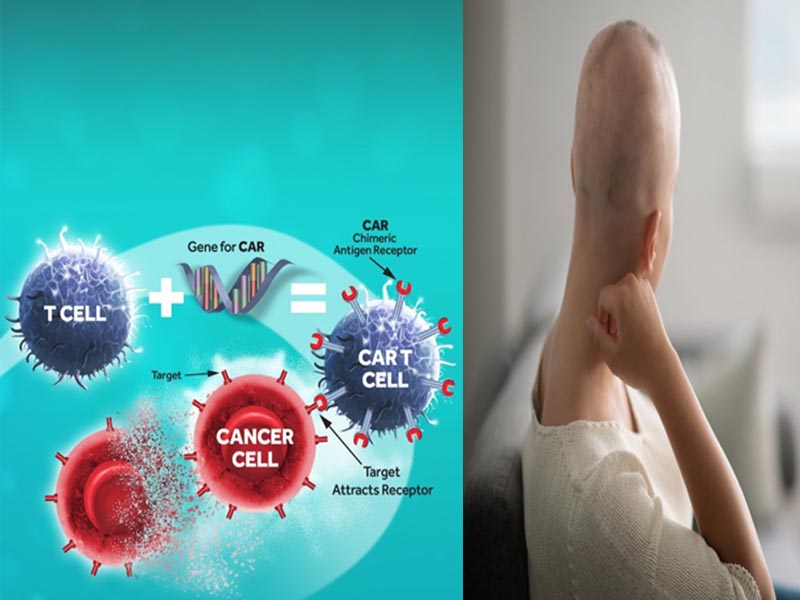Fasting may help with cancer treatment. There is a growing body of evidence supporting the role of fasting in both cancer treatment and prevention. Some research suggests that fasting helps fight cancer by lowering insulin resistance and levels of inflammation. Fasting may also reverse the effects of chronic conditions. Also, researchers believe that fasting may make cancer cells more responsive to chemotherapy while protecting other cells. Fasting may also boost the immune system to help fight cancer that is already present.
Fasting, or not eating food for an extended period of time, is well-known as a religious diet practice. But some are also beginning to use it for specific health benefits. Over the past several years, many studies have been published showing that intermittent fasting or a fasting-mimicking diet can reduce risk factors for and reverse symptoms of serious health conditions including cancer.
Your body is designed to protect you against starvation. To do this, it stores a reserve of the nutrients needed to survive when you eat. When you’re not eating normally, this puts the cells under mild stress, and your body begins to release those stores to fuel itself. Doctors suggest Trusted Source that as long as your body has time to heal itself after this period of stress, you won’t experience negative effects. One of the most immediate results of this type of diet is weight loss, since your body is using more calories than it’s taking in. It’s important to be careful about fasting for an extended period of time that your body cannot handle. Complete or continuous fasting will trigger “starvation mode,” in which your body starts slowing down to prolong your life. This typically begins after three days of continuous fasting. During this fasting period of more than three days, your body will hold on to fuel stores as much as possible, and you won’t notice weight loss.

Improving insulin sensitivity:
Insulin is a hormone that allows cells to extract glucose from the blood to use as energy. When more food is available, the cells in the body become less sensitive to insulin. This insulin resistance means that the cells no longer respond to insulin signals, leading to higher levels of glucose in the blood and higher fat storage. When the food supply is scarce, the human body tries to conserve as much energy as possible. One way it accomplishes this task is by making cell membranes more sensitive to insulin. Cells can metabolize insulin more efficiently, removing glucose from the blood. Better insulin sensitivity makes it harder for cancer cells to grow or develop.
Promoting Autophagy
Autophagy is a cellular process in which parts of cells break down for later reuse. Autophagy is critical for maintaining proper cell function, and it also helps defend cells in the body. Autophagy plays an important role in preventing and treating cancer. Several studies in mice suggest that autophagy may prevent cancer. These studies show how lack of autophagy leads to lower levels of tumor-suppressing genes. While lower autophagy may enable initial tumor formation, it is not solely responsible for malignant tumor growth or spread.
Boosting the immune system to fight cancer
A 2014 study examined whether fasting produces any cancer-fighting effects in mice stem cells. Stem cells are important due to their regenerative abilities. The researchers revealed that fasting for 2–4 days may protect stem cells against the negative effects of chemotherapy on the immune system. Fasting also activates stem cells of the immune system to renew and repair themselves.
This study shows that fasting not only reduces damage to cells, it also replenishes white blood cells and replaces damaged ones. White blood cells fight infection and destroy cells that may cause disease. When white blood cell levels drop as a result of chemotherapy, it affects the immune system negatively. This means that the body has a harder time fighting infections. The number of white blood cells in the body decreases during fasting. However, when the fasting cycle concludes and the body receives food, white blood cell levels increase.
The science behind fasting and cancer
Weight loss is just one benefit of intermittent fasting for a normal healthy (disease-free) adult. Recent animal studies and a few preliminary human trials have shown a decrease in risk for cancer or a decrease in cancer growth rates. These studies indicate this may be due to the following effects from fasting:
- decreased blood glucose production
- stem cells triggered to regenerate the immune system
- balanced nutritional intake
- increased production of tumor-killing cells
In one study of time-restricted feeding during 9–12 hour phases, fasting was shown to reverse the progression of obesity and type 2 diabetes in mice. Obesity is a major risk factor for cancer, which may support fasting to treat cancer. A second study of mice showed that a bimonthly fasting-mimicking diet reduced the incidence of cancer. Results were similar in a pilot trial by the same scientists with 19 humans; it showed decreased biomarkers and risk factors for cancer.
In a 2016 study, research showed that a combination of fasting and chemotherapy slowed the progression of breast cancer and skin cancer. The combined treatment methods caused the body to produce higher levels of common lymphoid progenitor cells (CLPs) and tumor-infiltrating lymphocytes. CLPs are the precursor cells to lymphocytes, which are white blood cells that migrate into a tumor and are known for killing tumors. The same study noted short-term starvation makes cancer cells sensitive to chemotherapy while protecting normal cells, and it also promoted the production of stem cells.
The role of intermittent fasting in cancer:
Intermittent fasting is fasting on a schedule, alternated with times of eating. For example, you may eat normally for most of the week, but on Tuesdays and Thursdays only eat for an 8-hour period and fast for the remaining 16 hours. Some also call this a fasting-mimicking diet.

Although it seems unusual in modern society where food is abundant, the human body is built to accommodate times when food sources are scarce. In history, fasting has often been necessary in the face of famine or other natural disasters that limit food supply.
Benefits of Water fasting during cancer:
Water fasting is a type of fast during which you cannot consume anything besides water. Most water fasts last 24–72 hours. You should not follow a water fast for longer than this without medical supervision. Here are a few reasons why people try water fasting:

- religious or spiritual reasons
- to lose weight
- for “detoxing”
- for its health benefits
- preparing for a medical procedure
The main reason why people try water fasting is to improve their health. Water fasting may also promote autophagy, a process in which your body breaks down and recycles old, potentially dangerous parts of your cells.
Benefits of juice fasting during cancer:
Juicing may seem like just a health fad, but there are benefits of juicing for people with cancer. Start simple and experiment with just a few fruits or vegetables for your mixes.Then, you can get more creative and try new combinations! Take it slow as to not shock your body with this new dieting technique.

A Beta Carotene Powerhouse :- 1/3 Cantaloupe, including rind, 3 Carrots, 1 Orange, peel
Awesome Antioxidant Booster: – 4 Apricots, pitted, 6 large Strawberries
A Restorative Juice :– 4 large Carrots, 4 stems of Broccoli,1 Garlic clove
Veggie Medley Juice:– 6 medium carrots, 1 beet (with greens), 3 large tomatoes, 1 to 2 large handfuls spinach,1/8 head cabbage, 2-3 kale leaves, 1⁄2-1 red bell pepper, 1 large celery stalk, 1/4 yellow onion , 1/2 clove garlic, 1/2 bunch parsley (optional).
Regularity Mix (Be careful – this mix is high in fiber!):– 2 plums, 2 small apples or pears, cut into wedges, 1-2 teaspoons of ground flax seeds or psyllium husk for additional fiber (optional).
Fasting is the best and easy solution to prevent & cure cancer. Many cancer patients are benefited through this fasting therapy in the world now.

Dr. Sujata Panda
PhD in Yoga, DNYS, N.D.,
Gold medallist,
Founder of Su-Ham Foundation
Owner of Viroga Virtual Clinic

